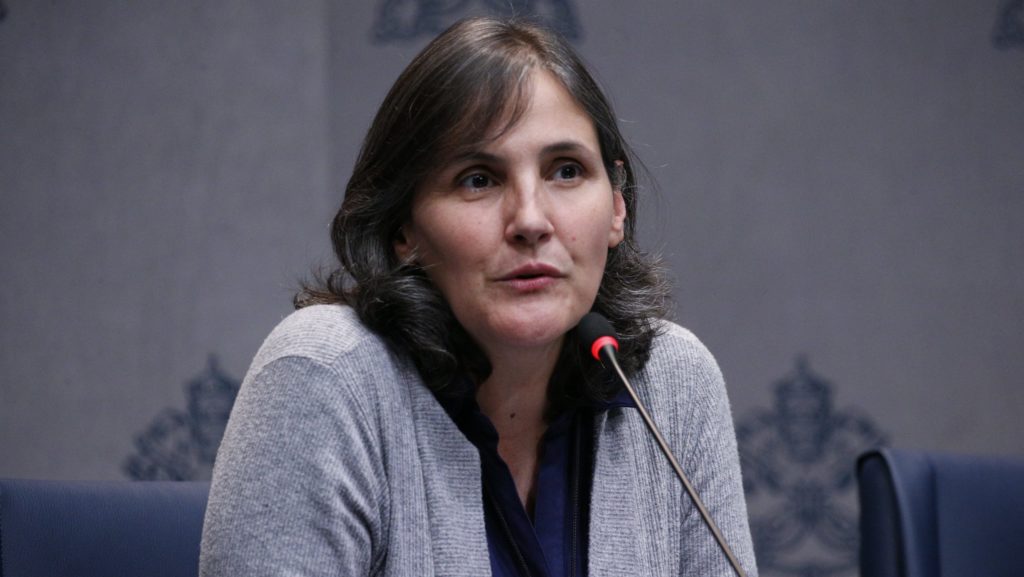Since the 2018 Synod of Bishops on young people, listening has emerged as a central element in overcoming the structural and cultural barriers to unity and participation in the Catholic Church, synod members said.
Recent synods convened at the Vatican as well as the worldwide synod on synodality have "shown us the value of listening as a common thread in any process of humanization," said Sister Liliana Franco Echeverri, a member of the Company of Mary and president of the Latin American and Caribbean Confederation of Religious.
Sister Franco highlighted the 2019 synod on the Amazon as an example of how "listening leads to conversion." The creation of the Amazonian Ecclesial Conference was proposed at that synod, and it was formally erected by Pope Francis in 2021. Members of the conference include bishops, consecrated religious, priests and deacons, Indigenous people and lay Catholic leaders, each nominated by their bishops' conferences.
"Truly the power to create transformation, to modify attitudes or structures, lies in listening to God and to the grassroots, to reality," Sister Franco said, noting that the various synods convened so far have acted as "laboratories" that experiment with the church's capacity to listen.
"Listening is positioning itself as the way of understanding what the narrative is that God wants to tell us human beings," she said. "Listening gives us the possibility of drawing close to one another and to God's love more serenely, sincerely and reverently. Listening truly transforms us and converts us, and I believe we are still in the process of learning that."
The challenge for the church, she said, is to understand that listening is "the path to our conversion and even the path to credibility in moments that we experience as a church and as a society."
Rwandan Bishop Edouard Sinayobye of Cyangugu said that the listening at the root of synodality has assisted the church in Rwanda advance in its mission of reconciliation 30 years after the genocide that killed some 800,000 people in his country.
While the killing ended in July 1994, Bishop Sinayobye said its legacy is still felt "as if it happened yesterday," and that the church continues working to heal people. Catholics are the largest religious group in Rwanda, making up 40% of the population, according to a 2022 U.S. State Department report.
"It is not easy to talk about reconciliation in a country torn apart by genocide, because one must accompany both the persecutor and the victim, and we do this in every parish," he said. "This synod has helped us considerably, it is a space in which we have deepened our approach to respond to this challenge of reconciliation" by working to "unify Rwandans and to help them live in a spirit of fraternity, in a communal and synodal way."
The synod "is reinforcing our pastoral mission and our way of living in Rwanda after the tragedy of genocide," he said.
Latvian Archbishop Zbignevs Stankevics of Riga said that ultimately the task of the synod is to "unlock the gifts and charisms of every baptized person," promoting co-responsibility and the "decentralization" of the church "but not in a secular or democratic way, in a way of ecclesial and spiritual communion."
Sister Franco said that to ensure the full participation of each person in the church, the church's relational structures must be more closely studied to prevent abusive dynamics from arising.
The whole synodal process has highlighted a need to revise relationships, she said, and is calling the church to opt for placing "a culture of care at the heart of the church, for a way of relating to each other that is more similar to the way of Jesus."

